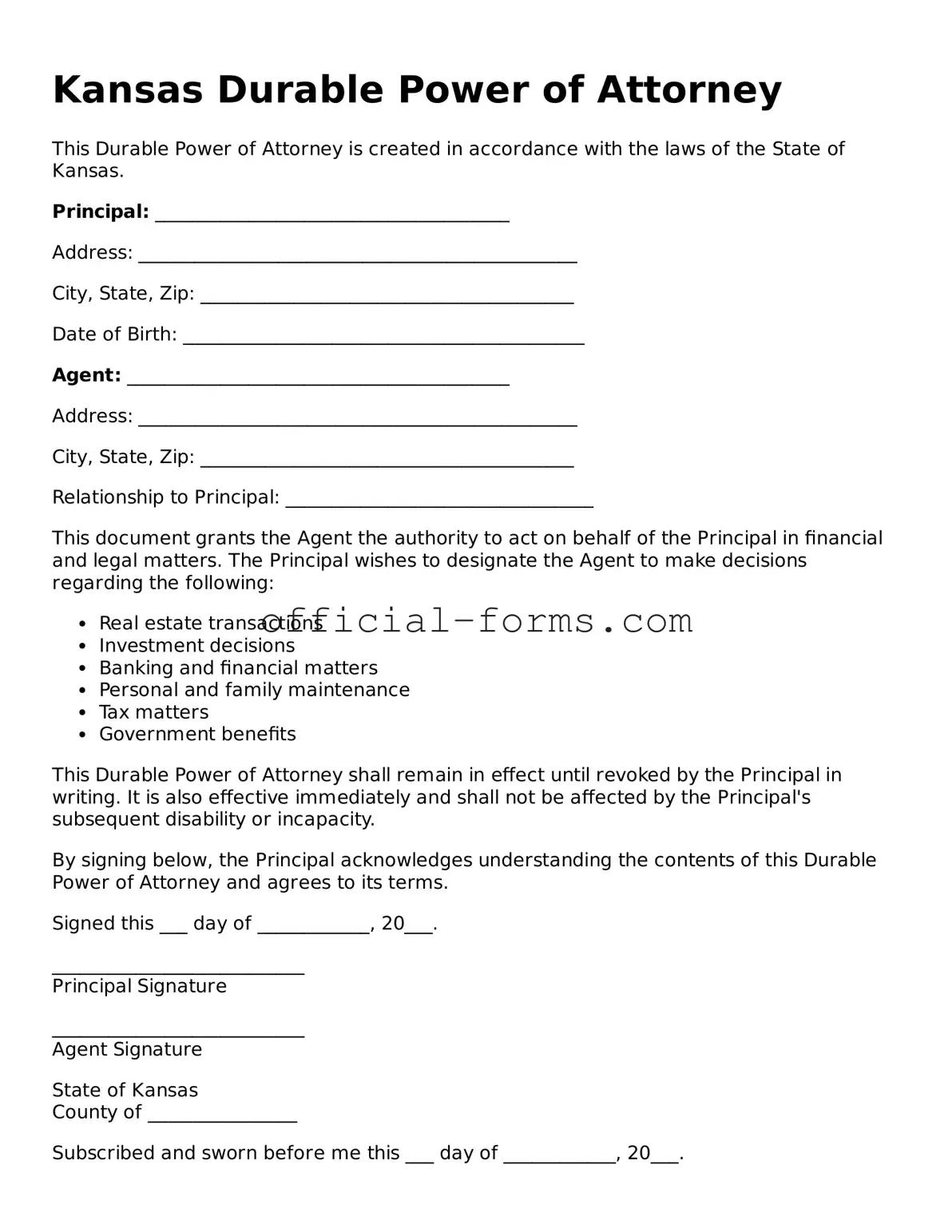Filling out a Kansas Durable Power of Attorney form is a crucial step in ensuring that your financial and medical decisions are handled according to your wishes. However, mistakes can easily occur during this process. One common error is failing to specify the powers granted to the agent. Without clear instructions, the agent may not have the authority to act in certain situations, potentially leading to complications.
Another frequent mistake involves not signing the document in the presence of a notary public. Kansas law requires that a Durable Power of Attorney be notarized to be valid. Skipping this step can render the document ineffective, leaving your affairs unprotected.
People often overlook the importance of choosing the right agent. Selecting someone who may not have the necessary skills or who could have conflicting interests can lead to poor decision-making. It is essential to choose a trusted individual who understands your values and wishes.
Additionally, failing to update the document can be a significant oversight. Life circumstances change, and so do relationships. Regularly reviewing and, if necessary, revising the Durable Power of Attorney ensures that it reflects your current wishes and that the appointed agent remains appropriate.
Another mistake is neglecting to inform the chosen agent about their role. An agent should be aware of their responsibilities and be willing to accept them. Failing to communicate this can lead to confusion and hesitation when decisions need to be made.
People sometimes forget to include alternate agents in the document. Designating a backup ensures that if the primary agent is unable or unwilling to serve, another trusted individual can step in without delay.
Misunderstanding the scope of authority granted is also a common issue. Some individuals may inadvertently grant too much power, while others may restrict their agent's abilities unnecessarily. It is crucial to strike the right balance to protect your interests while allowing your agent to act effectively.
Another mistake involves using outdated forms or templates. Laws change, and using an old version of the Durable Power of Attorney form can lead to invalidation. Always ensure that you are using the most current version available.
Lastly, many individuals fail to keep copies of the signed document. Without proper documentation, it can be challenging for the agent to prove their authority when needed. Always provide copies to your agent and keep one for your records.

